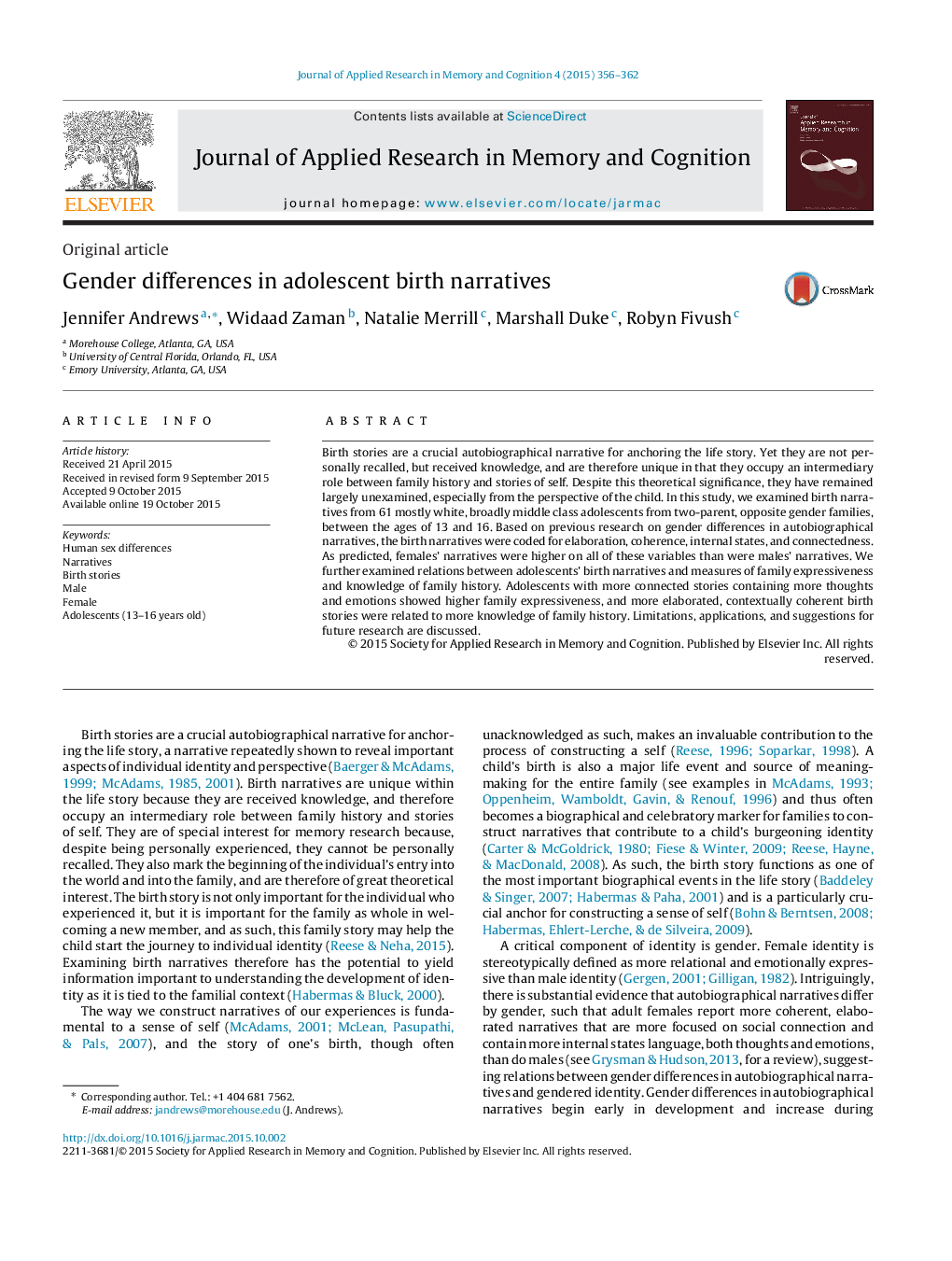| کد مقاله | کد نشریه | سال انتشار | مقاله انگلیسی | نسخه تمام متن |
|---|---|---|---|---|
| 881557 | 911876 | 2015 | 7 صفحه PDF | دانلود رایگان |
• Girls had more elaborative, emotional/cognitive, and socially connected stories.
• More connected, emotional/cognitive stories related to higher family expressiveness.
• More contextual coherence and elaboration related to more knowledge of family stories.
• Family expression related to more connected boys’ and more emotional girls’ stories.
• More contextual coherence for boys related to greater knowledge of family stories.
Birth stories are a crucial autobiographical narrative for anchoring the life story. Yet they are not personally recalled, but received knowledge, and are therefore unique in that they occupy an intermediary role between family history and stories of self. Despite this theoretical significance, they have remained largely unexamined, especially from the perspective of the child. In this study, we examined birth narratives from 61 mostly white, broadly middle class adolescents from two-parent, opposite gender families, between the ages of 13 and 16. Based on previous research on gender differences in autobiographical narratives, the birth narratives were coded for elaboration, coherence, internal states, and connectedness. As predicted, females’ narratives were higher on all of these variables than were males’ narratives. We further examined relations between adolescents’ birth narratives and measures of family expressiveness and knowledge of family history. Adolescents with more connected stories containing more thoughts and emotions showed higher family expressiveness, and more elaborated, contextually coherent birth stories were related to more knowledge of family history. Limitations, applications, and suggestions for future research are discussed.
Journal: Journal of Applied Research in Memory and Cognition - Volume 4, Issue 4, December 2015, Pages 356–362
